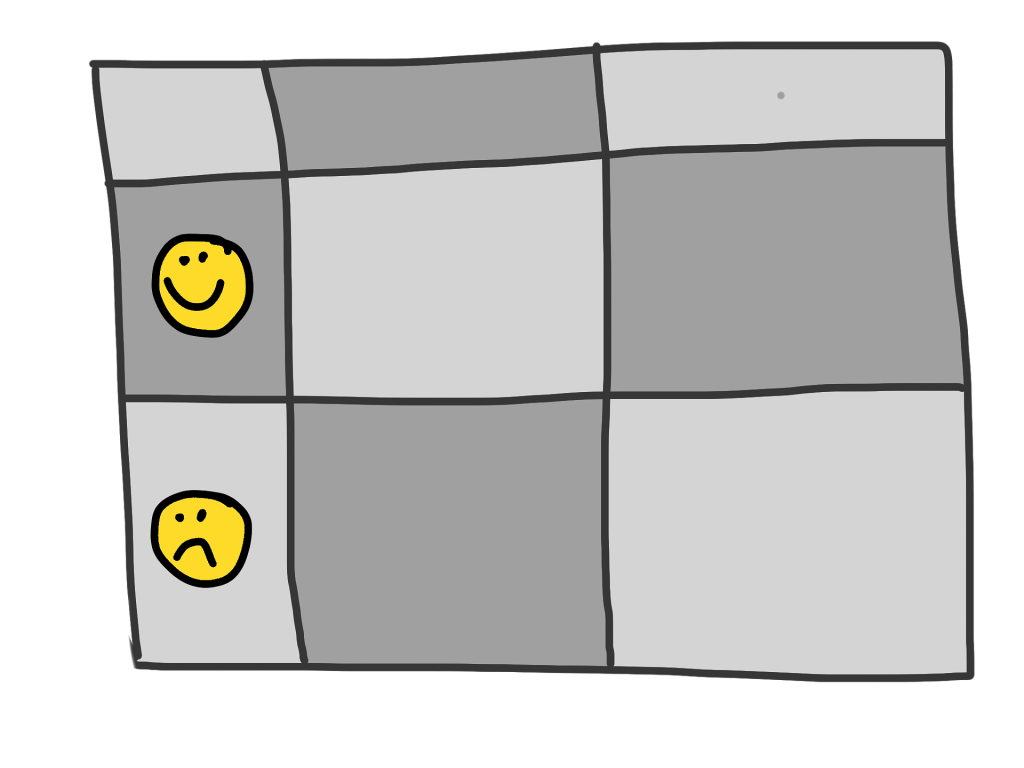Decisions are an inevitable part of life. Maybe this is why we love and hate our childhood years. It’s great that we don’t have to make any decisions for ourselves. Our nutrition, what we eat every day, the school that we go to, the location of the house that we live in and all the other things in life are decided for us by the grown-ups. The negative side to that is that we have to live our lives based on the decisions made for us by our parents. But this luxury only lasts till we come of age and attain physical, emotional and financial independence. That’s when the flood gates of ‘options’ open up and can potentially drown us if we don’t tackle them the right way.
In my many conversations with people, I realize that making decisions is not easy. There are a lot of things that play on the mind when one has to choose a specific path. Obviously, it is easy to decide whether to eat Chinese food or Mexican for dinner tonight, deciding on what you want to pursue as a career or whether you should take up a job or shift to another country, not to mention the person you should marry, is not an easy task.
Why is Decision Making So Hard?
Oftentimes when you hear another person share about their dilemma about an important aspect of their life, we may feel that it does not seem to be that big a deal. However, if you only put yourself in the other person’s shoes (if you really can) you may be able to understand why some decisions are hard for people. So, what are the general reasons why decision-making is so hard?

- Fear of closing doors or maybe we should call it FOMO – When you make a decision and move forward, you are actually saying ‘no’ to the other alternate options that you have in that arena. So, when you decide to study law, you are saying no to your other interest in psychology (say). When you decide to marry one person, you are automatically saying ‘no’ to all the other options that you may have or may get in the future. It almost feels like you are closing that door and throwing away the key. The fear of not being able to open that door ever again is something that keeps us from moving forward. Continuous evaluation of the various options can only lead to further confusion and dilemma.
- Fear of making the wrong decision – This one is quite simple and probably all of us have faced it at some point in time. For decisions that are significant and have reversible consequences, the risks involved are too high. Self-doubt and under-confidence are the hallmarks of this fear. When you make a decision regarding something you are not confident about, you are sure to feel worried about the negative consequences of a wrong decision.
- Confusion about priorities – Sometimes, we are not aware of the priorities that we hold dear. We may think that we are aware of our priorities and even make a decision but we may not be able to act on that decision in a decisive way. This happens when we make a decision cognitively but something keeps troubling us at the back of our heads. Take for example someone who needs to decide between the job that she always wanted and her child. While she may decide to quit her job and stay at home, there may be a nagging feeling of repent that may not allow her to actually resign.
- Perfectionism – One of my favorites among all the reasons for indecisiveness is perfectionism. Some of us get so absorbed in making the best or perfect decision that we get torn between all the options. Sometimes it manifests itself in the need to optimize the decision that you want to take. So, Varun needs to purchase an air-conditioner for his home. He has researched various brands and looked at their prices. However, Varun continues to delay the actual purchase because he feels that an online sale may be around the corner or maybe someone will put up a good aircon in a move-out sale his Facebook community marketplace. He knows that he feels stupid if he actually purchases it and a better option appears after that.
Understanding these Rules

If you have a clearer idea of what is keeping you back from making some important decisions in your life, then understand these few things.
- When you make a choice, it does not always mean that the other options are closed to you forever. However, if you do not make a choice and delay the next steps, you lose precious time (a resource we tend to take very lightly almost as if we are going to live forever). As you sit there not deciding your next move, the clock is ticking and time is passing you by.
- There is nothing called a perfect decision or the right way to do things. Each and every decision that you take will have consequences – positive and negative. It’s just that the positive and negative results of the decision will differ. So, you choose a practical business degree over counseling which seems to be an area of interest for you. While you may miss out on studying an area that you love, you will get to being financially independent much sooner than otherwise. And if you choose to counsel, then you may get to study what you like but may struggle to set up your practice and become financially independent. Neither of the two options is perfect or right. It is what feels right for you at that moment in time that matters! There are NO PERFECT ANSWERS!
Eight Simple Steps to Better Decision Making
1. Give yourself a deadline

This is the first step because you have to understand that living in the undecisive limbo is something that you can fall prey to very easily. The deadline has to be treated as sacrosanct and there is no way that you can break that curfew. At the same time, give yourself adequate time to think about the decision. Weighty decisions can take months to unravel and detangle. Others may take weeks. A decision to move to another country may take months while the purchase of a new car can be done in a few weeks.
2. Clutter-free time to think
Allow yourself time to think about the issue without clutter. Reserve time to think about it without interferences. If you are busy and cannot find this time during the week, escape the regular routine and keep some time off during the weekend. Understand that the decision is too important to be made while commuting, taking a coffee break or watching television.
3. Define the decision problem
Once you are with yourself without distractions, define the issue at hand. Writing the statement down on paper helps demystify things. While the decision and issues at hand may all be there in your head, the mere act of penning down the problem can help you see things better.
4. List out the options
Make a list of every single option that comes to your head as a solution. Don’t hold yourself back when writing these down regardless of how ridiculous they may sound. This is called the brainstorming of ideas and no censure is allowed at this stage. Park your rational, practical and critical side outside when you start doing this. You may want to strike off completely unacceptable solutions after the end of the exercise.
5. Upside and downside

Now that you are left with a few options that you can choose from, make a list of all the upsides and downsides of each. Allow yourself time to consider each option and the effects that the decision will have on various aspects of your life.
6. Sleep over it
After this whole exercise of defining the decision problem, brainstorming through all options, striking off the unacceptable ones and rigorously adding pros and cons to the remaining, drop everything. Get back to regular life and forget about the decision. Sleep over it. Don’t analyze anything for the next few days and sleep over it – not just one night but maybe a couple (if you have the time).
7. Listen to your gut

Think about the decision that you need to make but in a casual way. Cognitive assessment of things can take you up to a certain level. If the decision is not clear after all the analysis, go back to your gut and allow it to manifest. There is scientific research that proves that the gut literally has millions of neurons and often called the ‘second brain’. It just does not have the conscious part of the brain and therefore we sometimes feel uncomfortable leaving decisions to the gut. If you have faith in your gut, it will speak to you more often and louder too!
8. Do something
Lastly, it is obvious that doing something beats doing nothing! In fact, the mere fact that you do not make a decision is an action or decision in its own right and will have consequences of its own. So, choose to act, even if you think it is not perfect or the best solution and even if you feel afraid of the possible consequences. And be assured that you have made the right decision that could have been made given the circumstances, knowledge, and resources that you had!



Recent Comments